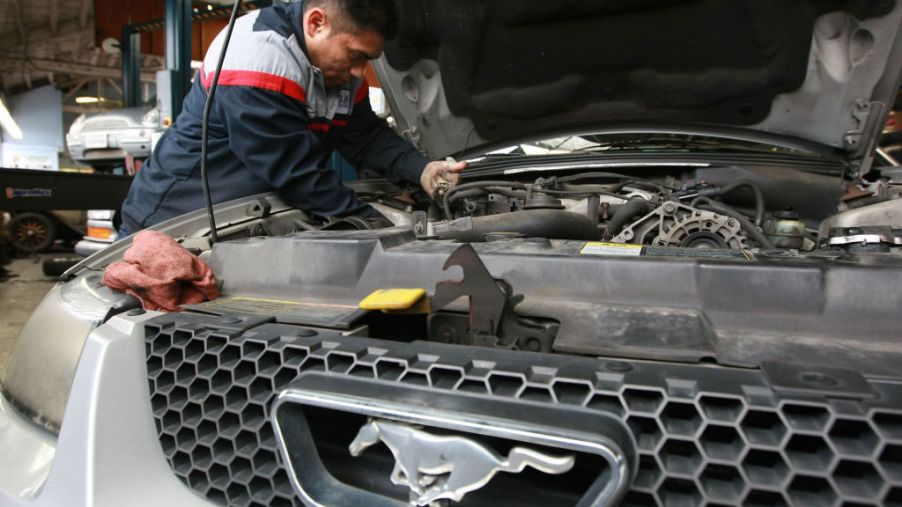
The Most Common Ford Mustang Problems You Should Know About
The Ford Mustang to many is more than just a car. It’s an iconic piece of history, with enthusiasts, within racing communities, and even in the movies. It’s one of America’s most beloved muscle cars, and owning one, regardless of the model year, is a true investment.
In April of last year, Ford celebrated the Mustang’s 55th anniversary on National Mustang Day. For the fourth year in a row, this car and cultural phenomenon earned its title as the world’s best-selling sports coupe.
As with any vehicle, there are a few common problems reported with the Ford Mustang. You might think there’s no issue big enough to deter you from buying that model you have your eye on right now. However, it might be helpful to learn what repairs you can expect.
Tie rod ends require replacement on the Ford Mustang
According to reports of repairs from Ford Mustang customers, RepairPal.com suggests a common occurrence of squeaking noises when turning the steering wheel. The problem lies with the outer tie rod ends, as they are worn and require replacement.
For the over 40 Mustang owners reporting this issue, repair costs average between $138-$196. Which Ford Mustangs have this problem the most? 15 models were part of this survey, from 1996 through 2010.
Synchronizer damage and camshaft sensor mount problem
Another common failure for 17 different model year Ford Mustangs involves the magnet for the camshaft. For 28 car owners, the magnet falls out its mount, causing damage to the nearby synchronizers. Owners experienced long crank times and illuminated check engine lights as a result.
It’s a relatively inexpensive fix, with the average repair cost being $88-$111 for diagnosis and magnet replacement. These issues presented around the 110,000-mile mark for most Mustang models.
Failed upper bushings
RepairPal.com collected reports from 24 Ford Mustang owners regarding a loud squeaking or chirping noise when the engine is warm. Mustang models from 1999 through 2010 and with mileage ranges between 50,000 to 140,000 are represented in these reports. It may cost $88-$100 to diagnose the issue properly, but the usual culprit is a failed upper bushing.
Leaks with valve cover gaskets or intake manifolds
Ford Mustang owners of 2.3L four-cylinder engine models from 1994 through 2001 might experience coolant or oil leaks. Leaking from the intake manifold can translate to coolant mixing with the engine oil. This can present a serious concern with internal engine operation.
For these 25 reports, the costs were minimal due to early detection and diagnosis — only about $201-$249. However, neglected leaks and coolant mixing with the oil can result in more severe problems.
Mass air flow sensors on the Ford Mustang GT
When the check engine light comes on, and you feel a hesitation or stall with the engine, it can mean something serious is happening under the hood. For some Ford Mustang GT models between 1999 and 2010, this has been a problem with the mass air flow sensor.
Replacing the MAF only costs around $196-$303 but does require proper installment of the air filter to make sure the seal is maintained to prevent future MAF sensor complications.
Buying a Ford Mustang, from any model year, with any configuration, means you’re joining a mass group of intense muscle car enthusiasts. Even with commonly reported problems, not much can deter fans from their favorite pony emblems.
Know, however, some model years and powertrains have trending mechanical hiccups and occasional failures. RepairPal.com is a great resource for car buyers to see what other vehicle owners have experienced.
Seeing problem areas might not keep you from buying a Ford Mustang, but it can help you prepare for maintenance you might face during your ownership.


